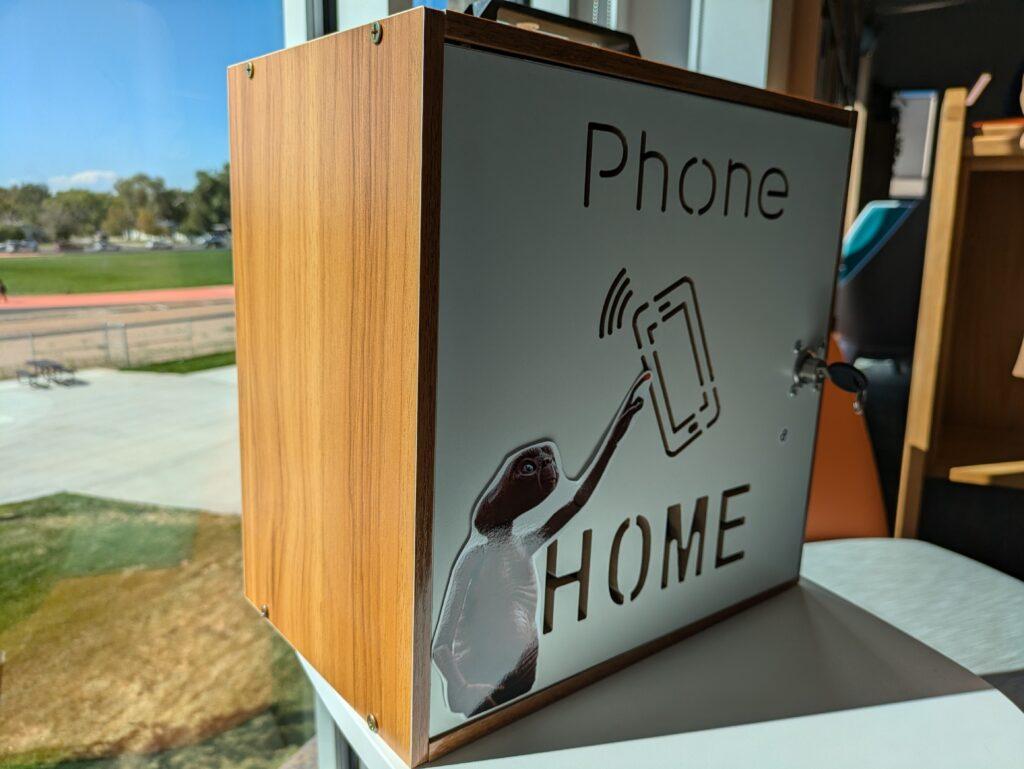
Updated at 12:09 p.m. on Monday, September 23, 2024.
Schools in Mesa County cracked down on cell phones this year, which got the attention of Colorado Attorney General Phil Weiser.
“I'm thrilled about your leadership here at (Mesa County Valley School) District 51 not allowing these phones to undermine your learning environment and to encourage young people to develop relationships not mediated by a phone,” Weiser told a roundtable of education leaders at Grand Junction High School on Friday.
Weiser announced a new program to provide grants of up to $50,000 for school districts seeking to put in place their own phone policies. The attorney general’s office said the money is drawn from a pool of funds acquired through legal settlements, including a deal reached with the vaping manufacturer Juul, which totaled more than $30 million.
School District 51, which covers the majority of Mesa County, implemented a districtwide policy that bans phone use for students below the 9th grade, and limits use for older students to passing and lunch periods. Weiser asked the group Friday how it’s going.
“I did not get a lot of pushback from families,” Superintendent Brian Hill said. “I actually got more feedback from families saying, ‘Thank you for doing this.’ That doesn't mean that there aren't parents that were not happy with it.”
Hill said one of the most common points of pushback was about how parents could contact their children.
“I don't think people realize we still have landlines in our schools,” Hill quipped.
Also, parents asked him what students would do if there were an emergency, like a lockdown at the school.
“Safety and security folks do not actually want your kiddo on a phone during those moments,” Hill said. “They want the kid paying attention to the adult so they're safe. And (phones are) a way that you spread misinformation a lot of times.”

Andrea Haitz, D51 board president, said the policy looks promising in its early rollout, noting that students “want the permission” to avoid their phones for a few hours.
Addie Boss, a senior at Grand Junction High School, said the universality of the enforcement made it easier for students to adopt the policy.
“It's like a break from having to see (the phone),” Boss said.
The grants from the AG’s office can go toward phone storage strategies and the implementation of technologies that limit phone features or programs on responsible phone use. The choice ultimately lies with individual districts, but Weiser said he hopes the funding will help encourage more districts to follow District 51’s lead.
“What we're trying to say to them is, please pay attention to the evidence, to the research that phones in schools without any form of restrictions is a recipe for kids being worse off and less learning,” Weiser said.
Editor's note: This story has been updated to reflect the source of the funding pool.









